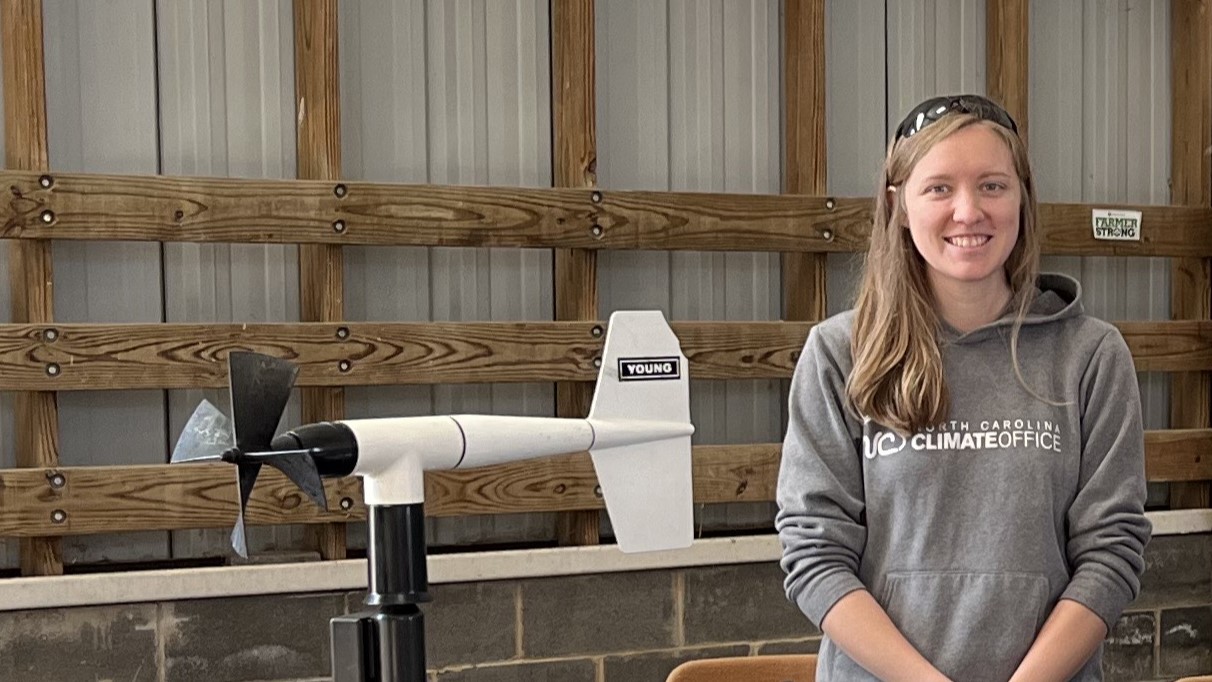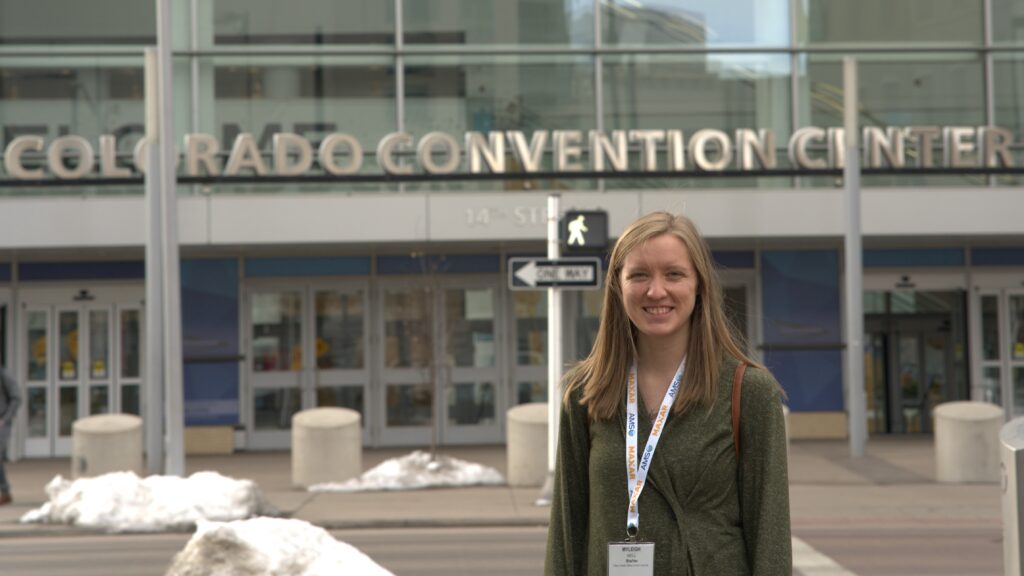Researcher Spotlight – Myleigh Neill

2023-24 Global Change Research Fellow
MS Student, Department of Marine, Earth, and Atmospheric Sciences
Advisor: Kathie Dello
Every year the Southeast Climate Adaptation Science Center funds a multi-disciplinary cohort of Global Change Research Fellows representing colleges across NC State University. Here are some highlights about 2023-24 Fellow, Myleigh Neill and the applied research she’s conducting.
About You
What do you study?
I study atmospheric and climate science. Currently, I am focusing on urban heat islands (UHIs). UHIs are urban areas that have higher temperatures than surrounding areas due to differences in land use. For my master’s work, I am mapping the surface temperature of NC State’s campus using unmanned aerial system (UAS), also known as a drone, thermal remote sensing.
What (or who) influenced you to go into this field of study?
I studied meteorology in undergrad, where I took several courses on climate and geography, and developed an interest in longer-term weather trends and how they affect people. I learned about the Chicago heat wave of 1995 and was shocked at the disproportionate impact on underprivileged, elderly individuals. I began wondering what could be done to protect those who are most vulnerable among us. Researching urban heat islands and determining which areas are most vulnerable to extreme heat is a step I can take to help decision makers develop informed decisions on extreme heat mitigation in their communities.
What do you think is the most pressing issue related to global change?
Decision makers need to be willing to openly listen to the communities who are experiencing climate change impacts, and base adaptation measures on what the community says they need.
About Your Research

What is the most important thing that you’ve learned?
Although I am still in the early stages of my research, I have already had the opportunity to learn from knowledgeable researchers and science communicators who know a lot about the impacts of extreme heat on humans and health. The most important thing I’ve learned from them so far is that the impacts of UHIs are not distributed evenly or equitably. The increased temperatures of UHIs are especially hazardous to the elderly, the young, those working outdoors, people with pre-existing medical conditions, and people without adequate cooling in their homes.
Who will benefit from your research?
Ultimately, everyone living and working on NC State’s campus. The surface temperature data I am collecting on campus will be included in the University Master Plan to guide the physical development of the university for the next decade. The relationship between land use and surface temperature that I find in my research will enable us to model future heat conditions on campus moving forward.
How would you describe your research to a 3rd grader?
Some areas of the city are hotter than others. This is called the “urban heat island effect.” By using sensors to collect temperature data, we can find out what areas are the hottest, and try to cool those areas down by taking actions such as planting more trees for shade.
About Your Global Change Research Fellow Experience
How do you expect the SE CASC Global Change Research Fellows Program to impact you and your work?
The program has exposed me to a variety of regional experts ranging from climate change mitigation and adaptation to environmental justice. The SE CASC also has federal, tribal, and university partnerships both regionally and across the country that I could potentially connect with throughout the remainder of my graduate school experience and into my career.
What advice would you give to a student that is interested in getting involved in your field?
Be willing to take chances! Apply for internships, and attend networking events, workshops, and conferences if you get the opportunity. These experiences will give you insight into the variety of career paths that are out there. Take classes that you might not have seen yourself taking initially. Also, be open-minded to ideas other than your own. There is so much to learn from people who come from different backgrounds than you!
What has been the most rewarding part or your favorite part of being a SE CASC Global Change Research Fellow?
The most rewarding part has been learning from the knowledge and experience of the other Global Change Fellows. The diversity of my cohort has given me valuable perspectives on climate change and adaptation outside of what I see in my own field
- Categories:
